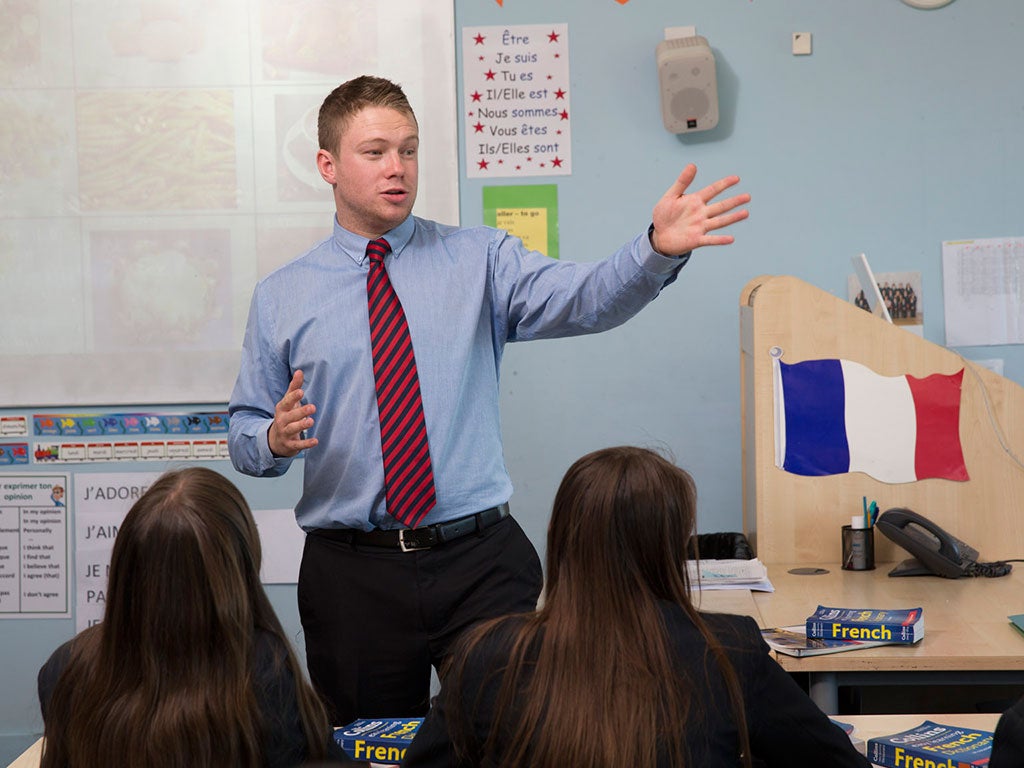A range of training options to help you get into teaching
Those hoping for a career in the classroom have various routes available – with plenty of practical experience along the way

Your support helps us to tell the story
From reproductive rights to climate change to Big Tech, The Independent is on the ground when the story is developing. Whether it's investigating the financials of Elon Musk's pro-Trump PAC or producing our latest documentary, 'The A Word', which shines a light on the American women fighting for reproductive rights, we know how important it is to parse out the facts from the messaging.
At such a critical moment in US history, we need reporters on the ground. Your donation allows us to keep sending journalists to speak to both sides of the story.
The Independent is trusted by Americans across the entire political spectrum. And unlike many other quality news outlets, we choose not to lock Americans out of our reporting and analysis with paywalls. We believe quality journalism should be available to everyone, paid for by those who can afford it.
Your support makes all the difference.Teaching today is very different to how it was 10 years ago," says Denis Oliver, executive head teacher of Holmes Chapel Comprehensive School in Cheshire. "When taking on trainees, we're looking for applicants who appreciate how the profession has evolved and are confident that this is the right career for them."
There is a range of university-led and school-led teacher training options. The university-led courses will include experience of teaching and training in at least two schools and time attending seminars and tutorials with other trainees at university.
Alternatively, school-led options include the School Direct route, which offers places in some of the country's best schools and appeals to high-quality graduates who want to feel part of a school team from the start. School-centred initial teacher training (SCITT) programmes are also available, often tailored towards local teaching needs. On the university-led, SCITT and School Direct Training Programme, you'll pay fees but may be eligible for a tax free bursary of £20,000, or a scholarship of £25,000, depending on what subject you intend to teach and your degree classification. The School Direct Training Programme (salaried) is an employment-based route for experienced graduates with at least three years' work experience. All of the training programmes lead to qualified teacher status (QTS), and many also award a PGCE.
"We are looking to offer training places to those who have the potential to progress quickly," says Denis, whose school works with 19 others
To get into teaching and for support throughout the application process, sign up online or call the and Manchester Metropolitan University (MMU) to offer the School Direct programme. "We're looking for the future head of department or assistant head."
Competition for employmentbased routes is fierce. "Candidates that stand out have relevant school experience," says Simon Jones, director of the teaching school at St Joseph's College in Stoke-on-Trent, which offers the School Direct programme. He also looks for applicants with at least a 2:1. "It's a competitive course, so we can select the best."
Whichever option you choose, you'll spend at least half of your time in a school, giving you plenty of practical experience. "We expect students to be academically able to meet high standards," says Valerie Butcher, MMU’s head of Initial Teacher Training Partnerships.
Denis concludes: "We want the next generation of teachers to be ambitious for themselves, the children and the school."
To get into teaching and for support throughout the application process, sign up online or call the
Teaching Line on 0800 389 2500
Join our commenting forum
Join thought-provoking conversations, follow other Independent readers and see their replies
Comments